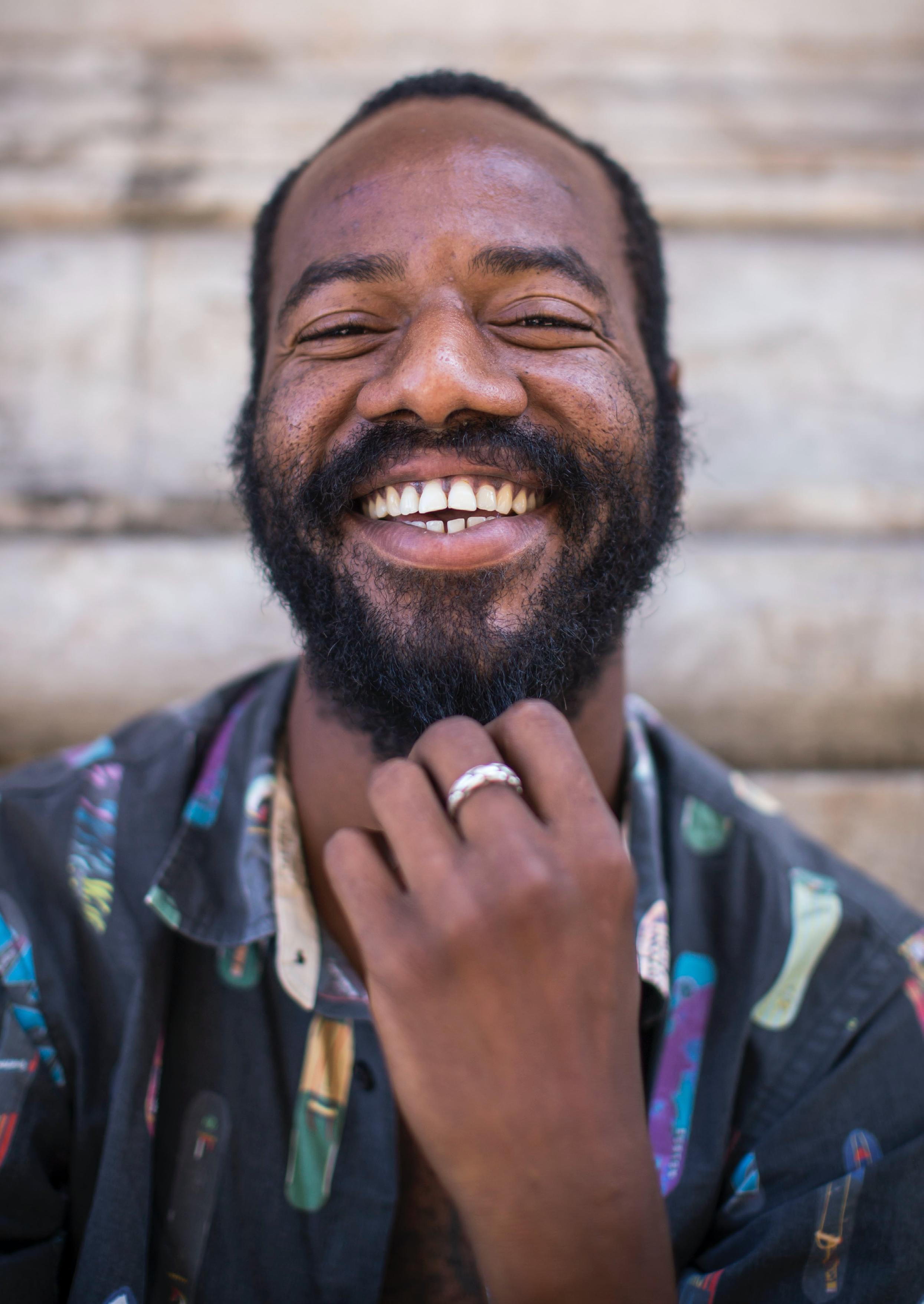
Renovate Your Relationship A manual for men A simple toolbox, easy steps | 1
Authors
2020 edition: Relationships Australia Victoria: Paul Wiseman, Dom Alford, with review by On the Line.
First edition: Relationships Australia Victoria: Andrew Bickerdike, Tony Gee, Paul Wiseman. MensLine Australia: Andrew King and Paul Ridgewell. Consultant: Terry Melvin. Research, writing, editing, and production: Helpful Partners Pty Ltd.
Acknowledgements
Funding
Copyright notice
Relationships Australia Victoria P.O. Box 180, 2 Prospect Hill Road Camberwell Victoria 3124 Email: enquiries@rav.org.au
About this booklet
Like a manual, this booklet is best dipped into, not read from cover to cover. Making changes can be difficult and requires courage. Your feedback Help us to improve future editions. Send your feedback to communications@rav.org.au
We acknowledge the many men we work with and who put continual effort into improving their relationships. We have drawn on some of their quotes and reflections.
The Relationships Australia Federation acknowledges the funding it receives from the Australian and state/territory governments.
© Relationships Australia and On the Line. This work is copyright. You may download, display, print and reproduce this material in unaltered form only (retaining this notice) for your personal, noncommercial use or use within your organisation. All rights are reserved.
Requests and enquiries concerning reproduction rights should be addressed to: Chief Executive Officer
| 1
Contents 1. Introduction The Project: Renovate Your Relationship 2. Project Scope: Men and Relationships Project Overview Project Plan What Do You Want to Build? Measuring Up Project Foundations Trust, Respect and Equality Resolving Conflict Mutual Decision-Making and Shared Responsibility Good Communication Intimacy 3. Project Toolbox Project Tools Tool 1: Working Together Tool 2: Avoiding Misunderstandings Tool 3: Sharpen Your Tools Tool 4: Resolving Conflict Tool 5: When the Roof Blows Off! Dealing with Anger and Frustration Tool 6: Who Has the Power? Abuse and Violence Tool 7: Self-Maintenance Tool 8: Renovate Your Sex Life Tool 9: Love Tool 10: Valuing Differences Tool 11: Appreciation Tool 12: When Trust Breaks Down Tool 13: Children – Planning for Your Family’s Extension? 4. Resources When It’s Time to Consult a Professional Where to Get Further Assistance Suggested Reading 3 4 5 6 7 7 8 9 9 9 10 10 10 11 11 12 13 14 15 17 18 20 22 23 24 25 26 27 28 28 29 30 | 2
1. Introduction
Renovate Your Relationship is a booklet about men doing maintenance work for themselves and their relationship.
Men tend to overlook the problems in their relationship until it’s too late. They often wish they had done maintenance work beforehand and never reached this point.

Your renovation project
Just like a home, your relationship always needs work. You need to maintain and repair things when they get tired and run-down.
Before you get started on renovating your relationship, read this manual first. Read the instructions and make sure you know how to make the renovation work.
When relationships break down, it can make you feel gutted, and knock your trust and confidence - as if the building has suddenly collapsed.
The challenge here is to notice when cracks appear and take action.
This manual is a call to action. Don’t wait until your relationship is in trouble. Use this manual as your set of instructions for your relationship – your most important renovation project. It’s worth the work!
The book has been inspired by the men, women and families we have worked with over many years.
| 3
The Project: Renovate Your Relationship
Project rationale
• Healthy relationships are important.
• Men can pick up on the warning signs that their relationship is struggling.
• Men can take the first step towards relationship maintenance and improvement.
• Men can tackle issues before they become a crisis.
A crisis point in a relationship can be an opportunity for change, but if a crisis has gone on for some time, then it can be more difficult to bring about positive relationship change.
Men and projects
Just as a house renovation takes time, energy and effort – not just surface painting, but building a solid foundation underneath –these skills can also be used to make your relationship work.
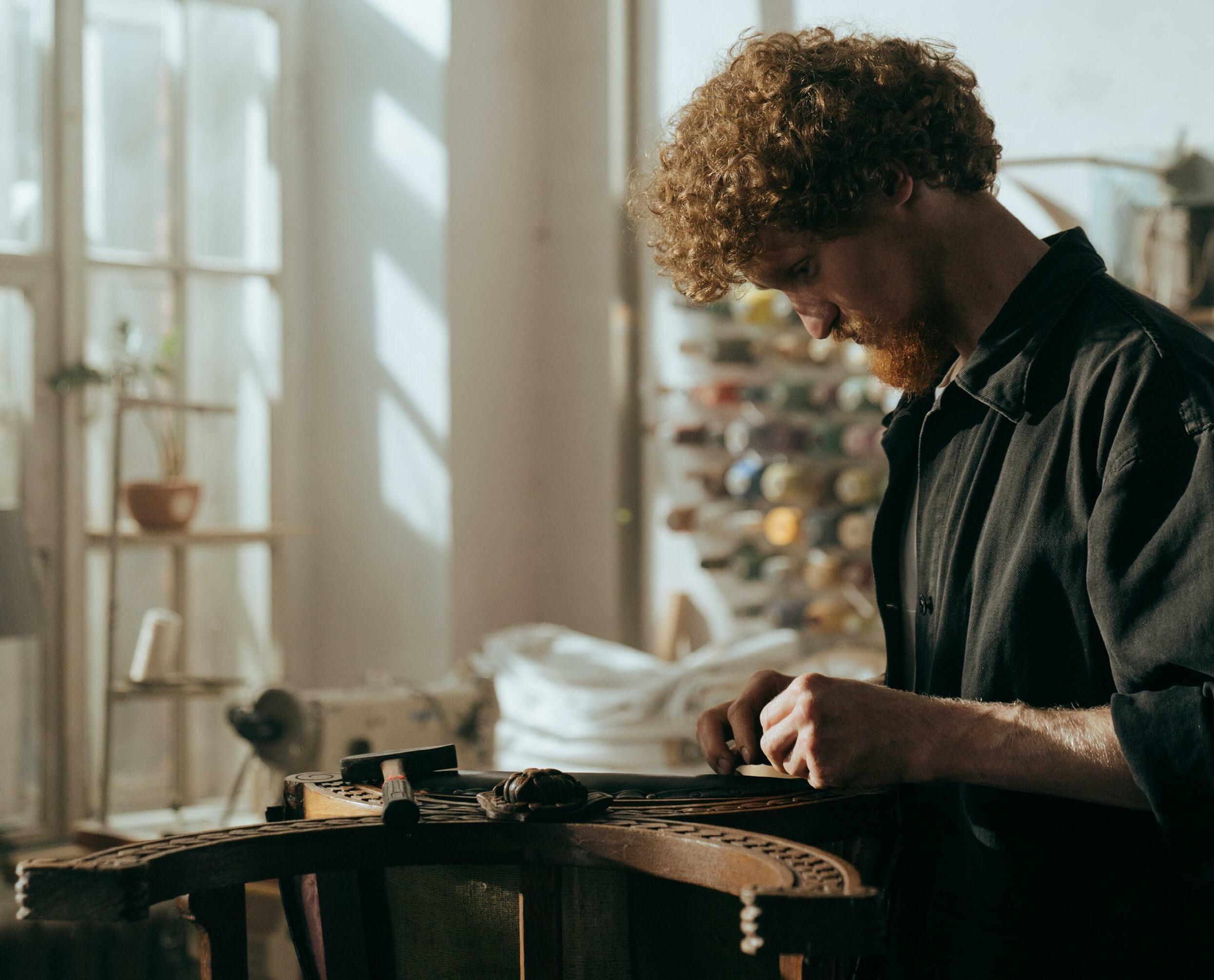
“We stopped talking about stuff and just did what was needed to be done around the house. Guess we just grew apart.”
- Nathan, 29
“I had a sense it wasn’t the best but I thought we were doing ok. I did all the physical stuff around the house but I didn’t think much about anything. We didn’t talk about it. Then the crisis came. Now she’s gone I realise we never talked. Guess I should have acted earlier.”
- Jim, 47
For more on the project scope and overview see Men and relationships on the next page. For the project tools, see Project toolbox on page 11.
| 4
2. Project Scope: Men and Relationships
Changing times
Think centimetres, laser levels, creativity and imagination!
Confused?
Sometimes that’s how relationships feel these days. The old, ‘me breadwinner, you homemaker’ model is gone, and now relationships are much more about sharing responsibilities. Men are looking for different ways of being dads and having relationships.
In a lot of situations, both the man and his partner work, so domestic tasks are shared. Many men want a better balance in their lives between work and home, and want to be more involved in parenting.
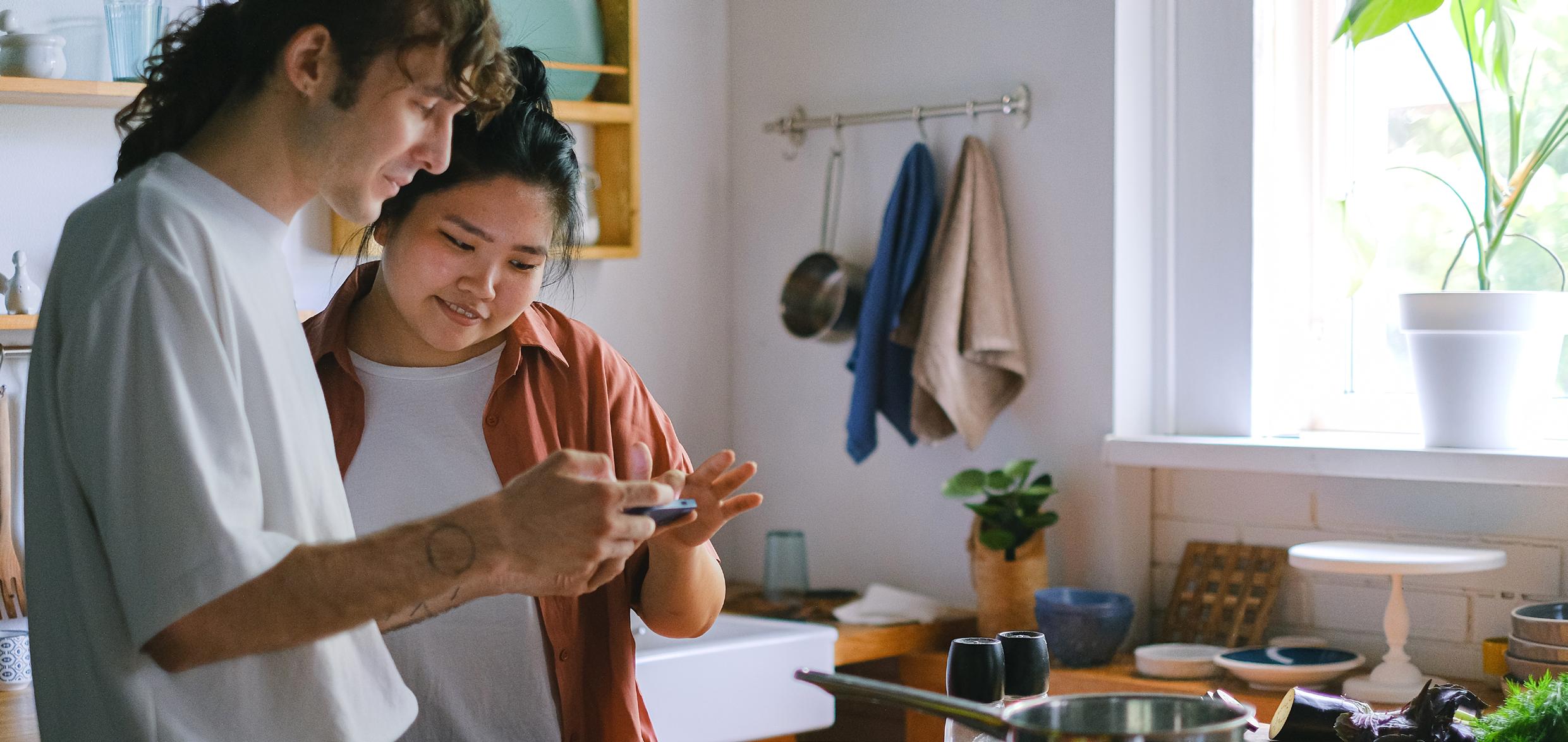
However, the statistics1 show that a lot of dads end up working full time and/or longer hours while their partner is at home during the first 12 months of their child’s life, and dads continue to work full-time even when both parents are working and the kids are older.
So, wanting that balance is one thing, but actually following through is the important bit.
The wear and tear, the stresses and strains of life
Stresses and strains bring new challenges to couples every day.
Financial worries, work pressures, chronic illness, death in the family, losing a job, moving house, having children, the list goes on.
| 5
1 Australian Institute of Family Studies (2021, June). Work and family. https://aifs.gov.au/research/research-reports/towards-covid-normal-employment-work-family-balance
Project Overview
Think about all the things you really value, such as:
• Your partner
• Your house
• Your garden
• Your hobbies
• Your sport
• Your car
• Your family
• Your friends
• Your job
If you had to give them up, which would you give up last?
For most men, their relationships with others are more important than anything else. How about you?
Project features that other men like:
• Men identify their partner as their best mate. (True for 80% of Australian men2).
• Men want close and tender relationships with their partner.
• Men feel confused, hurt or betrayed when relationships do not work out.
• Men often do not express their emotions and sometimes their partners often fail to recognise the significant feelings that men experience.
• Men want closeness; to be supported, to be held.
• Men want a trusting, honest and loyal friend.
• Men want somebody to share things with; goals, hopes and values.
| 6
2 Edgar, D. (1997). Men, Mateship, Marriage. HarperCollins (Australia) Publishers.
Project Plan
What do you want to build?
Generally, you can’t build well without a plan. Take a look at the list on the opposite page. Tick some of the boxes or add things of your own. Now take the next step…
Sit down with your partner and ask them what they want. This is a listening challenge. For instructions on listening, see page 18.
Are you both looking for similar things from your relationship? How do you accommodate your differences?
It’s easier to plan a renovation if you’re both looking at, and having input into, the plans.
- John, 48
Renovation is a lot easier if your partner is involved.

“It was only when I sat down and really listened to my partner that I remembered how much we had in common.”
| 7
Measuring Up
Many relationships work fine without all these components, but your answers and the differences between your partner’s answers should help you identify where your relationship needs work.
What do you want from your relationship?
Do you want to:
Talk about friends, activities and how your day went?
Discuss issues openly and make joint decisions?
Share the cooking, housework and parenting?
Share similar values?
Have differing likes and dislikes and respect each others’ differences?
Offer comfort when the other is upset?
Talk through and resolve conflict?
Be able to be alone without feeling lonely?
Feel valued, listened to and encouraged?
Trust and feel trusted?
Have a sex life you both enjoy?
Feel you can be yourself?
Do you want someone to:
Talk with on a deeper level?
Have children with?
Share the parenting pleasures and responsibilities?
Help bring in the money?
Share worries, concerns and problems with?
Do activities with, like travelling, eating out, and outings with friends?
Share interests with, like sport, film and music?
Make plans for the future and grow old with?
Love?
Share intimacy with, not just sex?
| 8
Project Foundations
Good relationships are built on solid foundations, which includes the following:
Trust, respect and equality
A healthy relationship is founded on trust, respect and equality.3
A healthy relationship leads to confident, supported and happy parents – which is great for kids! It also means dads end up spending more time with their kids, kids are emotionally better off, and mums feel more supported and are more likely to be better mothers.4
• Partners respect themselves and each other.
• Partners feel equal - there’s no ownership or domination by one person.
• There are equal rights, opportunities and responsibilities.
• Mutual trust develops over time, holding the relationship firmly in place.
See When Trust Breaks Down on page 26.
Resolving conflict
Unresolved conflict can damage relationships. In good relationships, couples work out a way
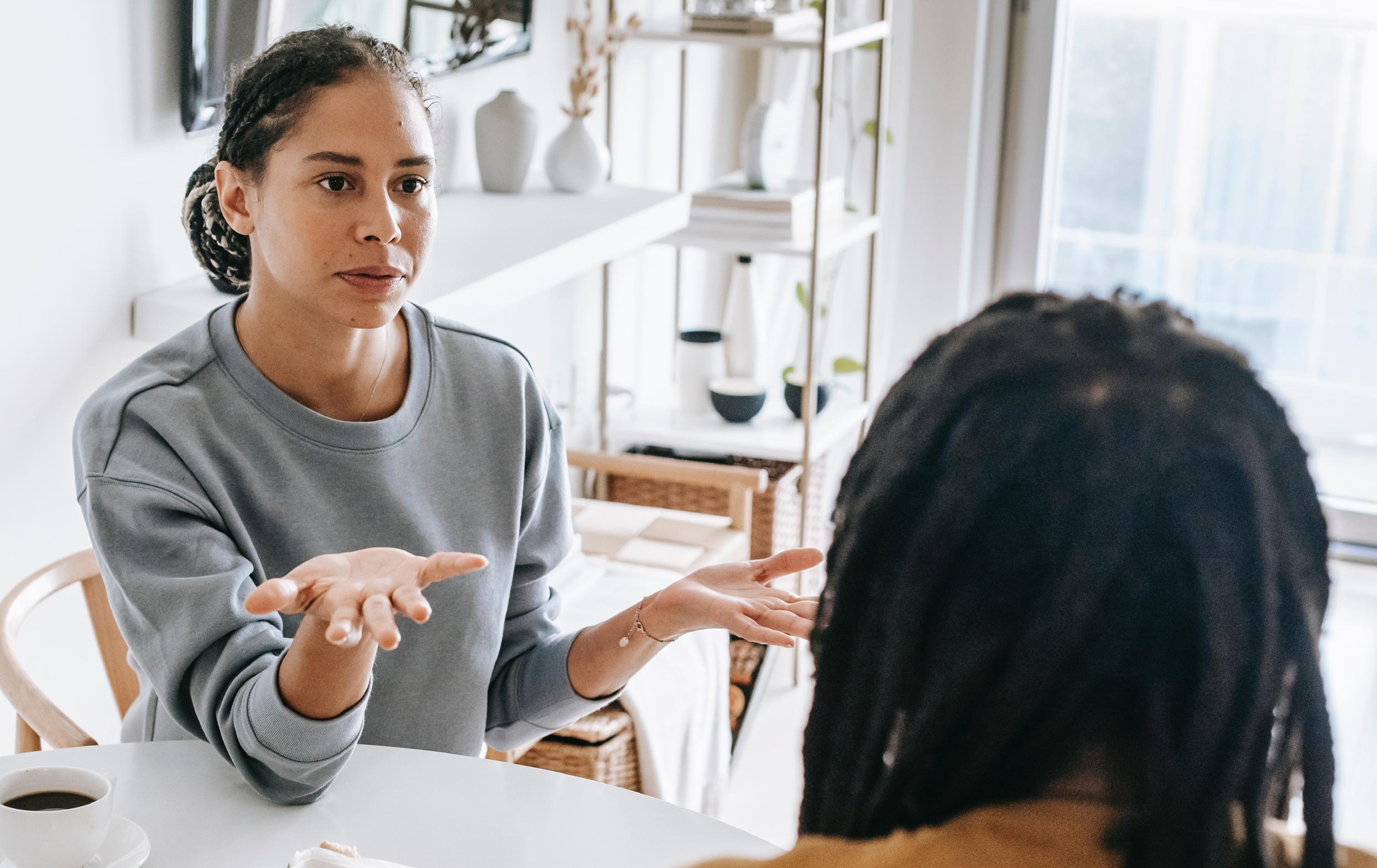
of discussing issues and difficulties so that they don’t keep coming back.
“My family avoided conflict. Mum wouldn’t argue in front of the kids, and Dad just hoped the problem would just go away. In my relationship, I started off just like them but the same issues kept coming back again and again and we nearly broke up. It’s not like we agree on everything but at least we talk about issues and difficulties so that they don’t keep coming back.” - Craig, 47
See Resolving Conflict on page 15.
3 Healthdirect (2022). Building and maintaining healthy relationships. https://www.healthdirect.gov.au/building-and-maintaining-healthy-relationships
| 9
4 Rosenberg, J., & Wilcox, W. B. (2006). The Importance of Fathers in the Healthy Development of Children. U.S. Department of Health and Human Services.
Mutual decisionmaking and shared responsibility
Both people share responsibility for the tasks and decisions.
“We both work so we share the tasks. It’s not like we do half of everything. I don’t do much shopping or cooking but I do other stuff like getting the kids showered and cleaning up the kitchen. It works for us.”
- Aman, 34
Embrace change. Adapt or get left behind.
Good communication
The strongest feature of a healthy relationship is good communication. Partners can communicate thoughts, feelings and opinions in an environment of openness and acceptance.
“She just listens quietly and once I get going I am able to talk about things I never would have told anyone before we met! She is my best mate!”
- Jeremy, 42
See Your Tools on page 11.
Intimacy
Without intimacy, couples drift apart and lose the closeness that once made the relationship vital and exciting. Intimacy means different things to different people.

“It is hard to answer the question “what is intimacy?” I know I take it for granted. It can happen when we talk or share deep stuff about each other. It’s not just about hugs, kisses or even sex. I know it demands a lot of trust between you and that other person. It’s actually more about that closeness you feel together.”
- Con, 55
| 10
3.
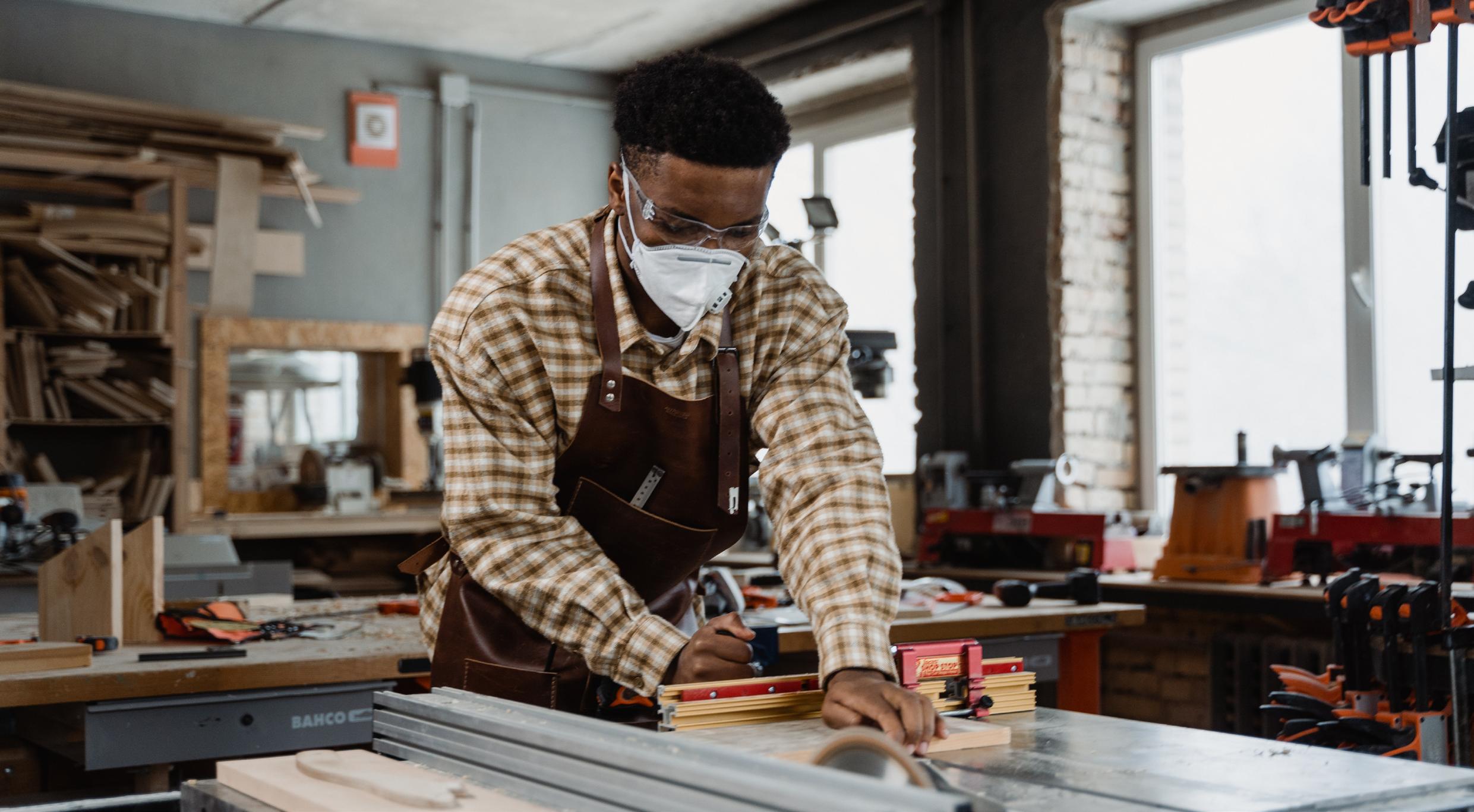
•
•
•
•
•
•
Project Toolbox
out these tools and make them work for you.
means doing it yourself – not leaving it up to someone else! This booklet works through the following tools. Project tools
Check
DIY
Tool 1: Working together
Tool 2: Avoiding misunderstandings
Tool 3: Sharpen your tools
Tool 4: Resolving conflict
•
Tool 5: When the roof blows off! Anger and frustration
Tool 6: Who has the power? Abuse and violence
Tool 7: Self-maintenance
Tool 8: Renovate your sex life
Tool 9: Love
Tool 10: Valuing differences
Tool 11: Appreciation
Tool 12: When trust breaks down
Tool 13: Children – Planning your family’s extension See Resources on page 28. Like calling for an electrician, if things get tricky you can always call for help. Sometimes a professional is necessary | 11
•
•
•
•
•
•
Tool 1: Working Together
A reality check
A renovation project is easier when you have a mate to work with - someone you know, trust and like.
You might think you know everything there is to know about yourself and your partner, but have you really thought about it? Do you still have the same hopes, dreams and values?
A set of unfinished statements or questions is below.
My
thoughts about me
• My life works best when...
• My relationship works best when...
• The two most important things in my life are…
• Two things I hate doing are…
• Two beliefs/values I like in myself are…
• Two ways I behave that I like about myself are…
• Two aspects of myself that I value in my relationship are…
Write down your answers and then ask your partner to do the same. Make a date with each other to share your answers.
Tell each other what you’ve both come up with. It’s a good idea to listen without any interruption or debate. Just take in what your partner says, or agree to share your notes.
How do the answers affect your renovation project?
My
thoughts about my partner
• The two most important things in my partner’s life are…
• Two things my partner hates doing are…
• Two beliefs/values I like in my partner are…
• Two ways my partner behaves that I like are…
• Two things about my partner that I value in our relationship are…
• Two aspects of myself that I would like to change are…
“I was unsure about doing this exercise but apart from a couple of points of difference, it was reassuring to realise that we both still care about the same things after all this time.”
- Anton, 39
• Two things about my partner that I would like them to work on are… Notes
| 12
Tool 2: Avoiding Misunderstandings
Some people are better communicators than others. Communication is something we all need to learn and improve on, because it’s an essential part of any healthy relationship. This includes our communication and relationship with ourselves as well. Ask yourself; “What am I feeling? What am I thinking? What am I wanting? How much of this have I shared with my partner?”
Communication is very complex. We may hear things incorrectly, or misinterpret the message. It’s important when communicating with your partner that you:
• are clear about what you want to communicate
• convey your message so that it can be received and understood as you want it to be.
It is also important that your partner:
• hears your message accurately
• understands what you mean.
Misunderstandings can occur at any stage and can lead to hurt, confusion or anger. It’s important to guard against distortion and make sure that your message is heard by your partner without them feeling attacked.
Communicating isn’t just about words – your tone of voice, facial expressions, body language and even silence can communicate as much, if not more, than the words spoken.
Try:
• Being aware of how you are feeling about your partner at the time. This can influence how you communicate
• Using “I” statements like, “I am sad that you decided not to help them out”, not, “You never want to help them”
• Checking with your partner about whether you have understood their message accurately before continuing
• Valuing how you and your partner have different ideas and thoughts about things. There is no right or wrong way, because many different approaches can all achieve the same great result. Try valuing your differences, rather than getting caught in an unhelpful, circle of “I’m right and you are wrong”
• Acknowledging each other’s contributions to the tasks at hand.
See Active Listening on page 14.
“I have to work away from home a lot and one night my partner started crying saying I was not at home enough. I responded ‘What would you like me to do? I am prepared to leave my job but it’s going to be hard to find another one.’
She replied, ‘I don’t want you to do anything! I just want you to listen and hear what I’m saying!’ As a guy, I tend to jump to trying to find a solution. It’s easy to forget that listening is often the best place to start.”
- Barry, 35
| 13
Tool 3: Sharpen Your Tools
Everyone has two ears and one mouth
Many people complain that their feelings, opinions and priorities are ignored or not heard. Good listening is love in action - it will bring you closer. If you want to be heard, then first learn
Active listening dos
• Make good eye contact.
• Speak quietly but clearly.
• Be relaxed and try not to frown.
• Use lots of nods, ‘uh huh…’ and ‘I see…’.
• If your partner says something you do not understand, ask for clarification.
• Ask ‘open’ questions that begin with, ‘who’, ‘what’, ‘where’, or ‘when’. These open up conversation and invite them to continue what they are saying.
to listen. The aim is simply to hear what your partner thinks and feels. There are some simple techniques for good listening.
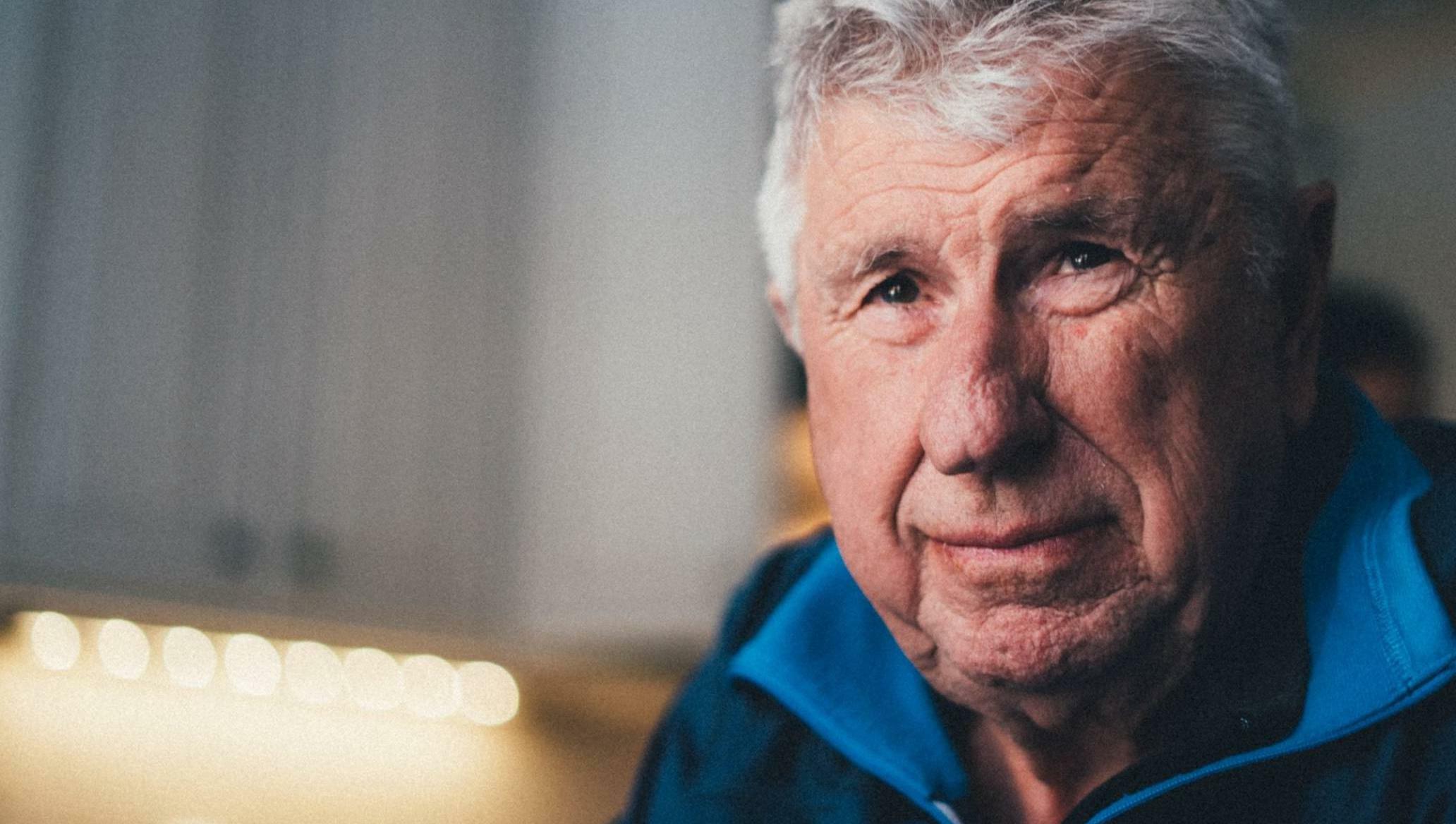
Active listening don’ts
• Don’t criticise or enter into a debate. Don’t cut your partner off before they have finished speaking.
• Don’t try to correct them or defend yourself. Just listen.
• Try not to leap to a solution; stay in the moment and sit with the feeling.
Listening is a skill, you need to learn, practice and work hard.
Do try to summarise what they have said and how they feel. Use your own words and say something like, “It sounds like you feel... when I...”.
Ask your partner: “How can I do better?” Listen to their answer using the tips above. You might have just started the groundwork for your relationship renovation.
Why should I practice this?
| 14
Tool 4: Resolving Conflict
Unresolved repeated conflict is like rust – it can corrode something that once was fresh and strong. Like rust, you cannot just leave it and hope it will go away.
The bad news: conflict is inevitable.
The good news: if dealt with well, it won’t necessarily be destructive. In fact, it can be enriching because our differences are also what we have to offer each other.
Keep children safe from hazards
It can be very distressing for children if their parents argue and fight in front of them. If you are abusive towards each other in front of your children, this can negatively affect your children.
But there’s good news. If you and your partner are in conflict and observe the following steps well, children can see the benefits of managing conflict in respectful and thoughtful ways.
Conflict resolution checklist
• Treat each other with respect.
• Be clear with your children and explain that they don’t need to be concerned about the conflict.
• Explain that the conflict is for you and your partner, as parents, to deal with.
Signs of damaging conflict
Are your disagreements and arguments always about the same things?
Do you end up shouting, name calling or being hostile?

Does one or both of you:
• defend yourself and make out it’s nothing to do with you?
• refuse to talk it over?
• become so angry and upset that you can forget what you are arguing about?
• take hours or days to calm down?
• let it go on for hours at a time?
• give the other person the ‘silent treatment’?
| 15
The anti-corrosion treatment
• Think about something you repeatedly argue about.
• Talk about it at a time when you are both feeling good and calm (and not under the influence of alcohol).
• Speak to your partner without being demeaning or intimidating.
• Complain about what your partner does, not what they are.
• Listen to what your partner says it’s like for them.
• Accept responsibility for what you can. Change what you can about your behaviour even while asking them to change their own.
• Remind yourself what is good in your partner. Tell them.
• Don’t lose your sense of humour!
• Avoid the ‘same old’ responses you’ve used in the past. This only maintains the issues.
• Ask yourself, “If I was to do my side of this differently, what would I say or do?”
• Accept how you are different from each other and value this more.
• Stop the conversation if it isn’t working and come back to it later.
“We were having the usual argument because I hadn’t cleaned up. She doesn’t realise how much I actually do. When I calmed down we were able to discuss it like two adults. I was able to admit that the point she was making was fair enough.”
- Barry, 35
Unresolvable issues
For some people there are issues that will never be resolved. Sometimes it is useful to know what these are and simply agree to leave them alone.
Consulting a professional
If you think you and your partner have difficulty resolving conflict, you might need to consult a professional. If your conflict gets out of control, if there is frequent abuse and shouting, you should seek help.
See Where to Get Further Assistance on page 29.
| 16
Tool 5: When the Roof Blows Off! Dealing With Anger and Frustration
Anger and frustration are the feelings most easy to express. It’s generally more acceptable for men to express these feelings rather than hurt, sadness or fear.
Feelings of anger or frustration need to be managed carefully to ensure they don’t damage
communication. Anger is not usually a good response to problems, even if it seems helpful in the short term.
Being angry or frustrated is easy but showing sadness, fear or hurt is the hard bit.
“It’s taken me ages to be able to talk things through. It is not about being wimpy or aggressive. It is recognising that others have feelings and needs too and that the differences between you must be negotiated.”
- Christopher, 47
What can you do?
Leaving can make matters worse. If you’re in the middle of an argument, don’t just walk off. Ask for five minutes to finish the discussion. Find a way to calm down. Count to 10 or take some deep breaths. Do something physical; walk, run, kick a footy, do anything to calm down.
• Get clearer about what you are feeling. Behind the anger, are you hurt, sad or some other feeling? Listen to your body.
• Get clearer about exactly what is making you angry. Sometimes, small things can annoy us, if we are tired or stressed.
• Often the smallest things become big when they are not dealt with quickly. Don’t let things build up. Telling someone that you
felt angry when they did or said something is more helpful than sitting on it or acting out.
• Stay focused on what you want to say. Don’t let the situation escalate into a yelling match.
• Be careful about who you express your anger to. Don’t just dump it on the people closest to you, or on people who are less powerful than you. For example, don’t yell at your partner, children, or dog when you are really angry with your boss.
• Ask yourself, “If I was managing this better, what would my partner, children or work colleagues be seeing and hearing?”
| 17
Tool 6: Who Has the Power? Abuse and Violence
Power is defined as the ability to act or have influence over others. Relationships have power differences in them.
How do you and your partner manage power and power differences between you both, and with your children, family, friends or work colleagues?
• Does someone have more power?
• Does someone want to be ‘top-dog’?
Power sharing
• Does someone want to make all the decisions?
• Does someone want to have the final word?
Has the power in the relationship become fixed in favour of one over the other? Is one person more concerned about imposing their will and disregarding or belittling the other person’s ideas or experiences?
Healthy relationships are built on the values of equality and respect. Power is shared and there is no attempt to make one partner subject to the will of the other. Decisions are made together or at least with the consent of the other partner.
Abuse: the greatest risk to your relationship
There is never any excuse for threatening, abusive and violent behaviour, no matter how angry or frustrated we are. This is the greatest risk to any relationship. It brings unwanted and damaging consequences for all concerned – your partner, your children and yourself. Violence is against the law.
Other forms of abuse
• Physical: hitting, slapping, restraining, threatening
• Verbal: harassing, frightening, insulting, undermining
• Sexual: forcing a partner to have sex against their will
• Emotional: ignoring, controlling
• Social: using put-downs, lying to others about a partner
• Financial: controlling money, incurring debts without consultation
• Spiritual: not letting a partner practise their religion
• Stalking: spying, loitering, harassing
• Gaslighting: minimising concerns and views.
| 18
The warning signs
Do you feel you have to control people by imposing your will?
Do you have difficulty expressing your needs, resulting in you feeling stressed or powerless?
Do you have a short fuse and a pattern of exploding?
Do you get angry when you drink?
Do you withdraw and say nothing until you can’t stand it anymore?
Do you lack respect for your partner?
What can you do?
Stop and think before you act.
• Take time out to cool down.
• Talk about your feelings or what you want.
• Be prepared to negotiate.
• Remember that your view is just that –yours. Are you willing to hear your partner’s views as well?
Ask for help (see contact information for MensLine Australia and Relationships Australia) on Page 26.
If you behave abusively or violently, you need to change. It is unlikely you can change this behaviour on your own.
The first steps to change are:
• beginning. This is the first step. It is a process that never ends
• taking responsibility for your behaviour
• focusing less on what the other person is doing and more on yourself
• giving yourself and your partner or children more choices, options and possibilities
• seeking help from professionals, but also family, friends and colleagues who you trust will be honest with you and not just tell you what you want to hear. This takes courage.
“The leader of this anger management group was talking about controlling strong emotions. Suddenly he kicked a chair. I was shocked and the light dawned. This is what my partner feels when I kick or hit the wall at home. I went home and told her, now I understand’.”
- Greg, 32
| 19
“My daughter has cystic fibrosis. It changed our lives. I became a workaholic. My wife and I never talked about anything else. I was burning out. I managed to see what was happening before it wrecked my marriage. My partner and I settled for a more relaxed lifestyle. I earn less but my daughter still gets good care and life is heaps better.”
- Rodney, 54
“Frankly, you can’t expect to work on your relationship unless you’ve got your own s#$t together.”
- Ben, 35
Tool 7: Self-Maintenance
Looking after yourself
Many men spend a lot of their time and energy providing for the family. As a result, we can become cut off from the people and activities we used to enjoy. This situation can get worse when children come along. Of course, you want
Find your space
Togetherness is great, but everyone needs some quiet time or space, particularly in an intimate relationship and especially when there is a growing family. Many men claim space in their ‘sheds’, where they can retreat at times
Work and life balance
It’s important for both you and your partner to have a work-life balance that supports your personal and professional needs. Start by
to care for your partner and your children, but you also have the responsibility to look after yourself too. Just as men are notoriously bad at going to the doctor, we also sometimes do not take good care of ourselves in other ways.

for some quiet reflection. Not everyone is a handyman, so maybe you have a study or a studio, or somewhere altogether different like the garden, the beach or a park. Your space is somewhere you can relax and recharge.
having a conversation with your partner about how you’re both feeling.
| 20
Depression and anxiety
Depression is more than a low mood. It’s a serious illness in which you feel sad, down or miserable most of the time.
Anxiety is a feeling that something bad is going to happen. You may feel irritable or constantly in a bad mood. Anxiety can affect your physical health.
Depression and anxiety can also be indications to ourselves, or signs that we need to take time doing things that will nurture us and help us to feel better about ourselves.
If you regularly feel depressed or anxious, see your GP or call Beyond Blue on 1300 22 4636 (www.beyondblue.org.au).
Drugs, alcohol and other ways of coping
It’s easy to turn to drugs or alcohol if you’re feeling low. Other men may smoke too much or overeat.
Friends
Relationships tend to be stronger when partners don’t just have mutual friends but maintain their own friendships as well.
These unhealthy coping behaviours actually lead to more stress in the long term. Be aware of this cycle.
Don’t cut yourself off from friends. Call up an old mate and organise an activity you enjoy together.

What can you do?
• Have regular health checks. Make sure your doctor covers blood pressure, diabetes, prostate, heart disease, cholesterol and diet.
• Do something each day to stay fit.
• Have at least two alcohol-free days each week.
• Manage stress with healthy relaxation methods.
• Negotiate a good balance of time for yourself as well as time as a couple.
| 21
Tool 8: Renovate Your Sex Life
Don’t confuse sex with intimacy
If sex is the physical act, intimacy is the closeness of feeling loved, valued, and respected for yourself without judgement. Without this kind of intimacy, sex can become a desperate and disappointing experience.
Talk about it
Men may not have the same desires as their partners.
Sex is complicated. It probably means different things to you and your partner. It may be a new
Intimacy with a partner does not always need to result in having sex.
and challenging discussion for you but it’s worth it if you genuinely desire a deeper relationship.
Discuss these things with your partner
• What do they love about your relationship?
• What excites them sexually?
• Are there things that don’t work for your partner sexually?
• Share your likes and dislikes with your partner.
• How can you work together to improve your sex lives?
• If the focus of your relationship/sex life was more broadly on affection, verbally and physically, what would this look like?
It can be different for women
Sex for many men can be automatic, planned and quick, but for many women, it is something
Things to ask yourself
• What do I know about my partner’s needs and wishes?
Sexual dysfunction
Sexual dysfunction or erectile problems are often temporary. They can be a symptom of relationship difficulties but many other factors can be the cause – health problems, stress, anxiety, concern about sexual performance,
that requires time, lots of just cuddling and maybe slowly moving towards foreplay.
• Can we make space for both our needs and wishes, rather than only one person’swhich results in one person feeling they’ve lost and the other has won?
depression or the effects of a past sexual trauma.
Don’t ignore it. If you have persistent problems, chat to your GP.
| 22
Tool 9: Love
Feelings of love, affection and warmth go through ups and downs in a relationship. Love requires regular maintenance.
It’s easy to take love for granted, but like a home, love needs regular upkeep to stay fresh and alive.
What can you do or say that will really make your partner feel loved?
Love matters
• Say positive words of praise, appreciation and value, both in private and public. Look for things that your partner does well, and praise them.
• Spend quality time together. Give your partner extended times of undivided attention.
• Give special or thoughtful gifts. Gifts can be small or big.
• Think of things your partner really loves, such as writing them a note or a card, buying flowers or going out for dinner.
• Show affection through hugs, kisses and touch. This should make your partner feel happy, soothed and relaxed.
• Engage in soul talk. Share your most meaningful feelings and encourage your partner to share theirs. Ask questions and follow up later.
• Create romantic experiences, like revisiting the place where you first met.

• Allow for space, time and activities apart, so that time together is even richer.
Remember, love isn’t about being possessive of or controlling over your partner.
| 23
“I got into the habit of praising the special things that I like and that she does really well. The stuff I used to complain about became less important.”
- Rick, 42
Tool 10: Valuing Differences
People are often initially attracted to one other because their partner is different to themselves. Then over time, these differences can be seen as problems.

For example, the way they took extra time to get ready was cute at first, but now it drives you crazy. Perhaps you think, “If only they were more like me, it would be fine”, or even, “If only they did what I said, it would be fine.”
Relationships highlight differences. We can either view these as a source of conflict, or see the differences as something to value, respect and enjoy.
Accepting differences enriches your life. Rather than wanting your partner to do things the same way as you, appreciate the ways in which your partner is different from you.
Seeing difference differently
Are the differences between you and your partner a source of conflict?
• Talk about how you are different in a spirit of acceptance.
• Avoid power struggles over whose ‘way’ is the best way. Take turns to do things each other’s way.
• See your differences as an opportunity to see the world from your partner’s point of view.
• Practice patience.
• Accommodate, negotiate and respect the impact of your actions on one another.
• Notice when your partner’s different perspective has a positive impact on you. Tell them.
• Value more how you, your partner and your children are different, and how you all enrich each other’s lives.
“My wife likes to go clothes shopping with her friends. It used to get to me. I have to remember she is very supportive of my projects even though they don’t interest her much.”
- Adam, 36
| 24
Tool 11: Appreciation
Ways to acknowledge your appreciation of your partner

• Tell them often.
• Take responsibility for organising activities.
• Make meals or sharing household chores.
• Do things together that your partner likes to do.
• Show affection, giving hugs, kisses and saying, “Thank you”, often.
• Give simple gifts that have meaning to your partner.
“I knew something was wrong in our relationship but didn’t know how to approach it. Then I found heaps of intimate text messages in my partner’s phone. We finally talked and decided to go to see a counsellor.
Over the past few months, it has been hard and it has demanded all my patience. It’s as if we’ve had to back to the beginning again. I’ll just see how it goes.”
-
32 | 25
Jamal,
Tool 12: When Trust Breaks Down
Feeling betrayed or experiencing breakdown of trust are some of the most difficult issues facing relationships.
Trust is a core part of the relationship. It is built up slowly, lost in an instant and only recovered
in the face of repeated evidence of trustworthiness.
Destructive comments, actions, a flash point of violence or an affair are all moments where trust can vaporise.
What to do if trust breaks down in your relationship

• Ensure that all people (adults and children) are kept safe.
• Think first before you act! Your immediate response will be influenced by the flood of feelings you experience. It is unlikely to result in useful decision-making.
• Ring MensLine Australia on 1300 78 99 78.
• Ring Relationships Australia on 1300 364 277 for counselling.
• With the support of others, talk through with your partner what has happened and what needs to occur in the future.
• Do not involve other parties, especially children, as it’s an unhealthy way of managing your distress.
• Move forward and ask yourself; “What have I learnt about myself and my partner?” and “What do I need to do that will help me to do this?”
“If trust goes, you cannot talk it back. You cannot persuade or be persuaded that it is back. Trust is earned by actions over time. You must be trustworthy over and over again to be trusted. It took years for us to trust each other again.”
- Simon, 62
| 26
Tool 13: Children – Planning
Your Family’s Extension
The arrival of the first child is often the start of your steepest learning curve. You and your partner may never have done this before. Overnight, your relationship changes from being a couple, to being parents.
Men often feel there is little they can do, but actually dads have a significant impact on the mother and child’s wellbeing, both when children are newborn and growing up.
The benefits of being a dad
Having a dad who is committed, sensitive and supportive of their partner and child leads to a happier and healthier life for everyone in the family.
Research shows that fathers have a significant impact on:
• the mother’s success at breastfeeding
• children’s emotional regulation
• adolescents’ social competence
• children’s maths and language development
• reducing a child’s chances of being overweight
What can you do?
Get involved and spend time with your children.
Work as a team, sharing the parenting
• When children are newborns: cooking, nappy changes, getting up in the middle of the night and playing with the child.
• When children are older: transport, homework, sporting activities.
Talk through the impact that children have on being intimate with your partner. With constant interruptions and disturbed sleep, intimacy and sex can take a back seat. Sometime sex is not an option, but you can find other ways to be intimate. Things like touch, holding hands, deep and meaningful conversations, writing letters to each other, and exploring your feelings of love can provide the intimacy you are looking for.
Talk with and listen to your partner.
There are even more benefits to children:
• when they are parented cooperatively by both parents
• where parents have an emotionally intimate relationship
• when kids don’t feel caught up in the tensions or conflict between their parents.
Try to have regular time off, separately and together. Organise a night at the cinema, or a meal out to allow you and your partner to reconnect with each other, so that the relationship doesn’t become too distant or disconnected. Make a point of having time together in the evening, to touch base with each other, not just as parents, but as a couple as well.
No matter the age of your children:
• take the children out with you at least once a week to share activities you enjoy. Your partner will love the break
• share the responsibility for breakfast, bedtime or evening routines
• make your partner’s breakfast or lunch. Ask about their day and tell them about yours.
| 27
4. Resources
Resources: When It’s Time To
Consult a Professional
Counselling
Lots of men struggle with the idea of seeing a counsellor, as they think, “I should be able to work this out” and “I’m not going to have someone else tell me what to do.”
Myths:
• I should be able to work this out on my own.
• A counsellor will tell me what to do.
• Seeing a counsellor is giving up and a sign of weakness or failure.
Independence and self-reliance are admirable qualities, but so is consultation and reflection. When we are part of a couple we have to become both independent and interdependent in ways that we both want and value.
Counselling can be helpful from time to time, to get us out of a bind or unhelpful habits.
Counselling can:
• assist you to clarify for yourself what you want
• support you to implement changes
• be a source of advice, ideas and new information for you/your partner to consider.
It does take strength and courage, but a counsellor will help you use your own resources to deal with issues or find ways of improving your relationship.
Family dispute resolution
This is a service that couples usually access when they are separating. It is used to resolve issues of parenting and property. It assists couples to deal with these issues in ways that work as well as possible for them and their children, rather than going to court.
Getting legal advice as part of this process can be useful, so that decisions are not made in isolation. Separation is a difficult experience and many participants value being able to address these issues in the presence of a
trained third party. It may not be appropriate if there is a history of domestic violence or mental health issues.
For more information on family dispute resolution, contact:
• Relationships Australia on 1300 364 277
• your nearest Family Relationship Centre by visiting www.familyrelationships.gov.au
• the Family Relationship Advice Line on 1800 050 321.
“I was feeling so bad, like we were in this pattern but we couldn’t get out of it and I thought, well if I have a plumbing problem I get a plumber; we need an expert! We haven’t looked back since.”
- Tim, 28 | 28
to Get Further Assistance
Where
Contact any of these organisations. They can refer you to services in your area.
78
is the national telephone and online support, information and referral service for
with family and relationship concerns. The service is available 24/7,
staffed by professional counsellors, experienced in men’s issues.
277 I www.relationships.org.au Relationships
is a leading provider of relationship support services for individuals, families and communities, with 75 years’ experience.
community-based, not-for-profit Australian
services
regardless
religious
or economic circumstances.
services
counselling,
support
Relationship Advice Line
The
Line
service
issues.
Free, confidential, professional financial counselling service. Services
- Centrelink Families Line
Payments and services to help you when you’re having a baby and raising
Call Back Service
telephone counselling and support for
Available
week,
service
–
and family relationship support
| 29
MensLine Australia
1300 78 99
I mensline.org.au MensLine Australia
men
from anywhere in Australia and is
Relationships Australia 1300 364
Australia (RA)
RA is a
organisation with no religious affiliations. Their
are for all members of the community,
of
belief, age, gender, sexual orientation, lifestyle choice, cultural background
RA offers
including
family dispute resolution (mediation), family violence services, family and community
and education programs, and professional training services. Services are delivered through a network of over 100 locations across all Australian states and territories. Family
1800 050 321 I www.familyrelationships.gov.au
Family Relationship Advice
is a national telephone
established to assist families affected by relationship or separation
National Debt Helpline 1800 007 007 I ndh.org.au
Australia
136 150 I www.servicesaustralia.gov.au/families
children. Suicide
1300 659 467 I www.suicidecallbackservice.org.au Free professional
people at risk of suicide, their carers and people bereaved by suicide.
seven days a
the
provides up to four sessions of specialist support with the same counsellor. Websites Support for Fathers
fatherhood
- www.supportforfathers.com.au
Suggested reading
Books
• Biddulph, S. (2002). Manhood (3rd ed). Finch Publishing.
• Edgar, D. (1997). Men, Mateship, Marriage. HarperCollins (Australia) Publishers.
• Hamilton, M. (2006). What Men Don’t Talk About. Penguin.
• Hamrin, R. (2002). Great Dads: Building Loving Lasting Relationships with Your Kids. Cook Communications Ministries.
• Harris, R. (2007). The Happiness Trap. Exisle Publishing.
• Moore, T. (1994). Soul Mates. HarperCollins Publishers.
• Moore, T. (1994). Care of the Soul. HarperCollins Publishers.
• Perel, E. (2007). Mating in Captivity. Hodder & Stoughton.
• Schnarch, D. (1999). Passionate Marriage. Scribe Publications.
Relationships Australia booklets
Check out these booklets produced by Relationships Australia, available from relationships.org.au/category/publication/

• Partners – A Guide to Successful Relationships | 30
This book was produced by
Relationships Australia Victoria
1300 364 277 www.rav.org.au
Relationships Australia Victoria (RAV) has been supporting Victorians since 1948, and provides specialist family and relationship services. Our vision is for positive, respectful, safe and fulfilling relationships for all Australians.
We are committed to inclusivity and providing safe, inclusive and accessible services for all people.
Relationships Australia Victoria acknowledges the Aboriginal and Torres Strait Islander peoples as the Traditional Owners of the lands and waterways of Australia. We support Aboriginal people’s right to self determination and culturally safe services.
We recognise the lifelong impacts of childhood trauma. We recognise those who had children taken away from them.
MensLine Australia
1300 78 99 78 mensline.org.au
MensLine Australia is the national telephone and online support, information and referral service for men with family and relationship concerns. The service is available from anywhere in Australia and is staffed by professional counsellors, experienced in men’s issues.
MensLine Australia provides:
• a safe and private place to talk about concerns
• confidential, anonymous and non-judgmental support
• coaching and practical strategies for managing personal relationship concerns
• relevant information and links to other appropriate services and programs as required
• callers have access to 24-hour support, anywhere, anytime.
MensLine Australia is funded by the Australian Government Department of Social Services and is delivered by On the Line, Australia’s leading professional telephone and online counselling provider.
| 31
Notes | 32
Notes | 33

www.relationships.org.au 1300 364 277 | 34


















